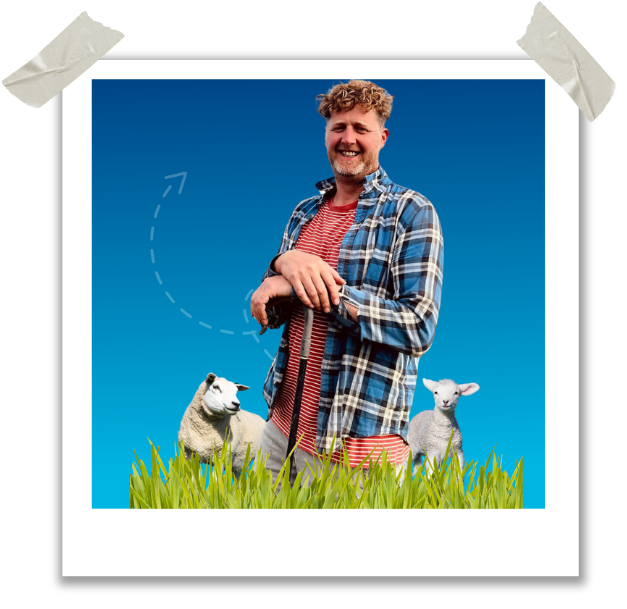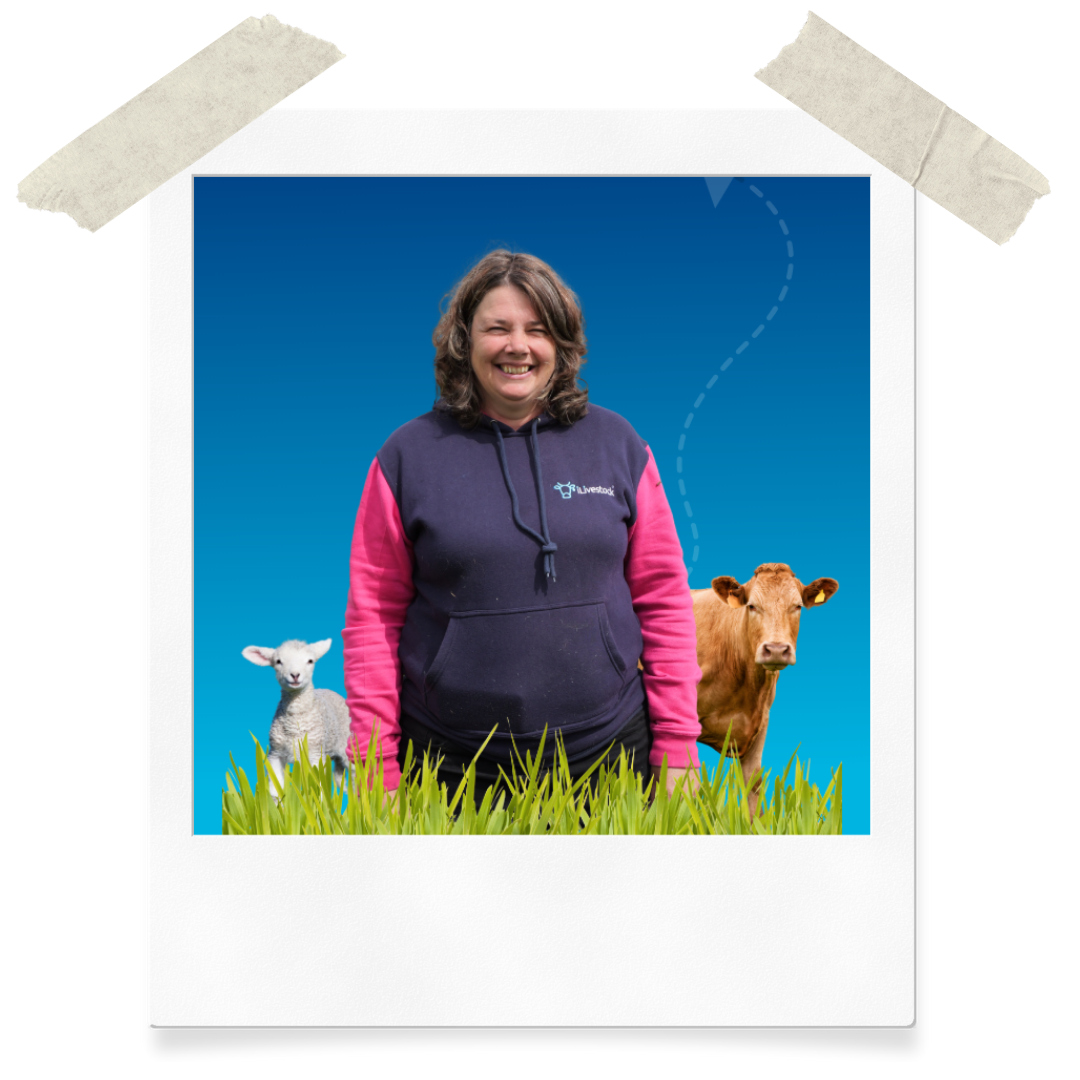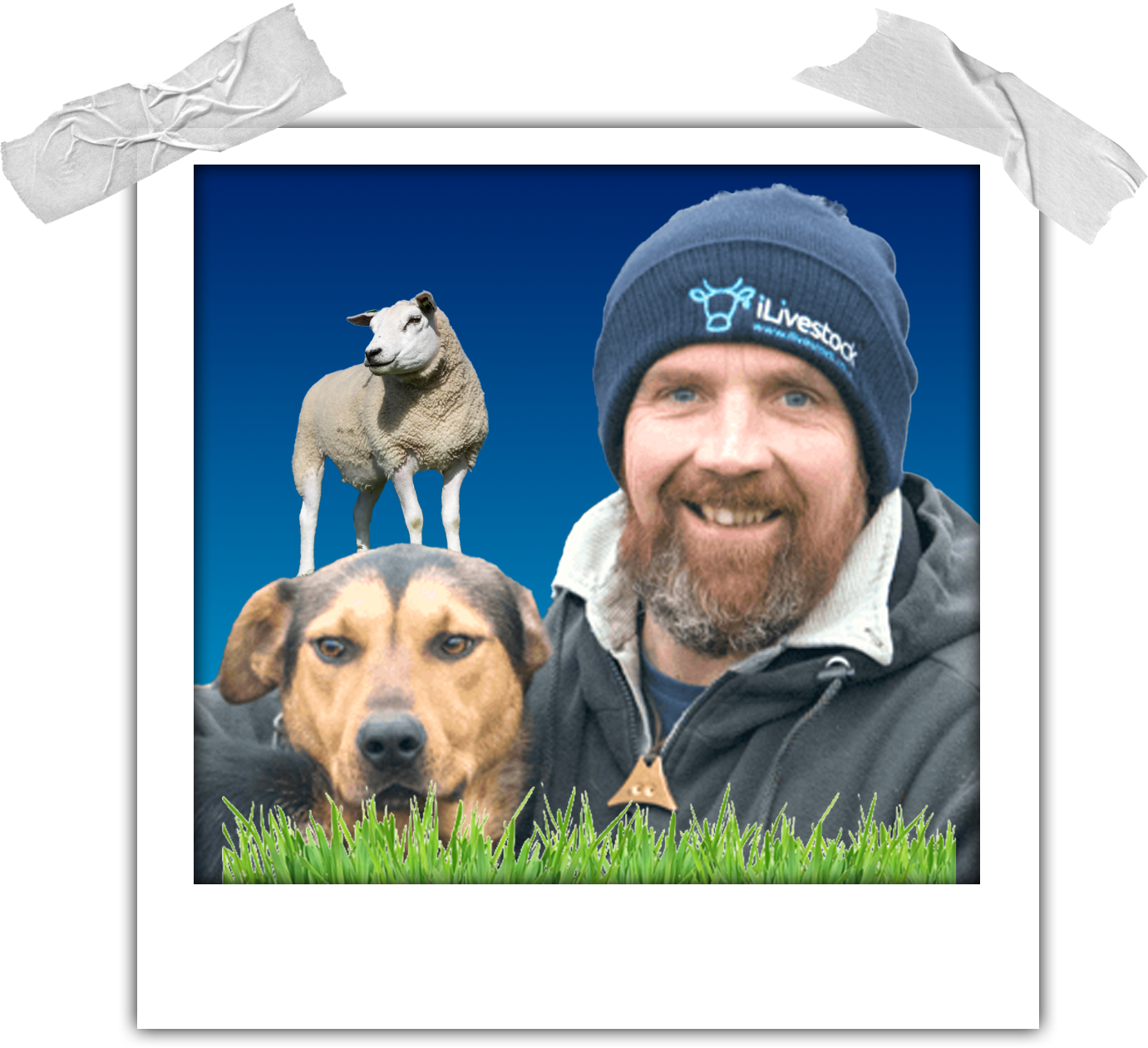FARMER STORY
Duncan Family
Lands of Drumhead | Balfron, Scotland
Bruce and Shona Duncan are sheep and cattle farmers farming on 1,250 acres of land in Scotland, located on the edge of the Loch Lomond and the Trossachs National Park.

FARMER STORY
Duncan Family
Lands of Drumhead | Balfron, Scotland
Bruce and Shona Duncan are sheep and cattle farmers farming on 1,250 acres of land in Scotland, located on the edge of the Loch Lomond and the Trossachs National Park.

Family-run
We are a family-run farming business based at Lands of Drumhead and Blairfad, where we own about 375 hectares and rent another 145 hectares of land. Our farms range from 200 to 650 feet in altitude. We are part of Monitor Farm Scotland , an initiative of QMS and AHDB , which aims to help improve the productivity, profitability, and sustainability of Scottish farm businesses. This programme helps us to expand our horizon, look into new business areas, and it’s been very useful to hear from other farmers. We farm together with my parents, my father’s cousin and his wife, my wife Shona, and me. A couple of our children are also interested in joining us in the future.
We have a herd of about 170 suckler cows, mostly of native breeds. We use Angus, Simmental, and Limousin bulls to produce our own replacements. Our main priorities are to ensure easy calving, a good temperament in our cows, and getting the herd conception rate up. We sell most of our cattle at around 18 months old, weighing about 450 kilos each. We currently have about 1100 breeding ewes and breed our own replacements. We have Scottish Blackies , Texels , and Mule ewes and use different types of tups.
Livestock productivity
We were using another app for our farm data, but it was often unreliable. Calving time is when apps are handy rather than relying on a notebook, as you can just input the data into the phone. Unfortunately, when Bruce was trying to input data at calving time, it failed to sync the data we entered. As a result, we almost went back to pen and paper, which would have been a step backwards. Something needed to change.
We started looking for a management system that could better handle our livestock records. We chose iLivestock because it offers a reliable and easy-to-use app that syncs with the cloud and allows all our family members to record and access data from anywhere on the farm simultaneously. With iLivestock, we don’t have to worry about losing data or carrying a laptop around. It’s a huge improvement over our previous software, which was outdated and buggy.
"It’s still early stages for us, but once we’ve got more records in the app, no doubt we’ll be able to make more informed decisions when choosing replacement stock."
Animal record keeping
We are gradually moving over all our animal records from our old system. Already on the first day, we experienced the difference and efficiency in the process. More accurate information, and it’s less time-consuming to capture animal information. We used to go through all the lists and numbers and check everybody's there. We can now go into the fields and put them into different groups, right on the spot. That was our way of thinking anyway.
We started putting in the sheep while scanning. We tried this with a few tups a few months ago, during the iLivestock on-farm set-up. Just to get the hang of it, and see how the system worked. We have weighed batches of lambs, but we haven’t yet uploaded all the breeding ewes onto the new system yet.
Breed
We mainly started using the iLivestock app and eWeigh for pregnancy diagnosis and weight recording. With iLivestock, you can record these important metrics on the go, right at the side of the crush, without having to rely on written notes or come back to the laptop later. This not only saves time but also ensures greater accuracy in our records.
I would say that record keeping is incredibly important, and livestock management software makes it so convenient. It’s time efficient and provides accurate information, which leads to better decision-making. It’s still early stages for us, but once we’ve got more records in the app, no doubt we’ll be able to make more informed decisions when choosing replacement stock.
"We can now record pregnancy diagnosis and weight recording right at the side of the crush, without having to rely on paper records or come back to the laptop later."
Sustainable farming
As we look ahead to the future of our family business, we are considering both who will take over and how we can farm more sustainably. Sustainability is important to us. Improving livestock productivity with environment-friendly methods we see as an excellent way to become less reliant on government subsidies, which is relevant for most farmers these days.
We believe farm efficiency is key, which we try to do by increasing the performance of our animals. We know there is more we can do. Three of four children are keen to get involved in the farming business. They’ve already expressed ideas on how we can improve things on the farm. We welcome their ideas.
"We chose iLivestock because it offers a reliable and easy-to-use app that syncs with the cloud and allows all our family members to record and access data from anywhere on the farm at the same time."



